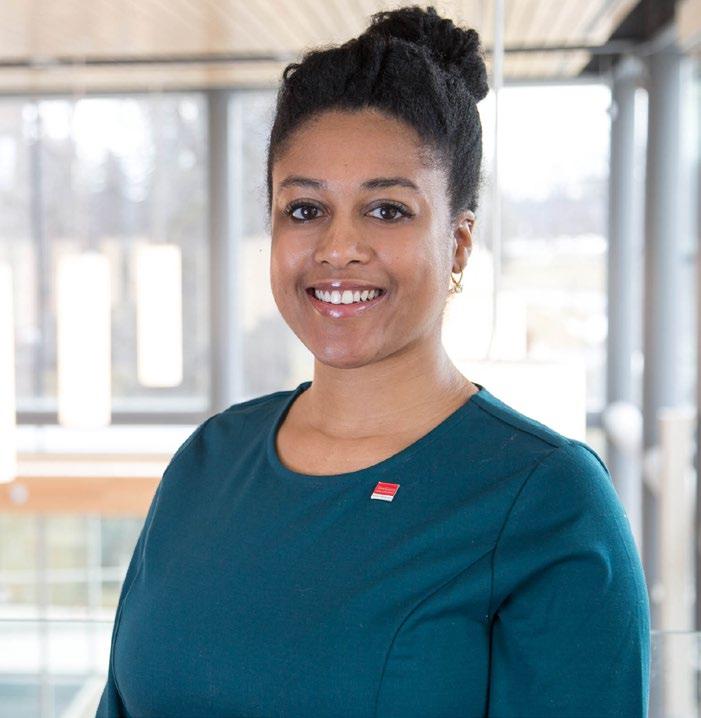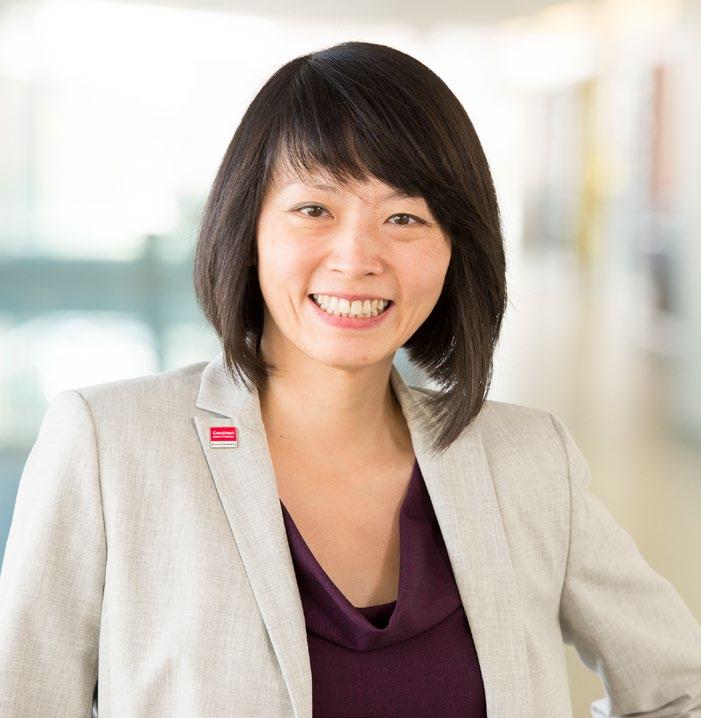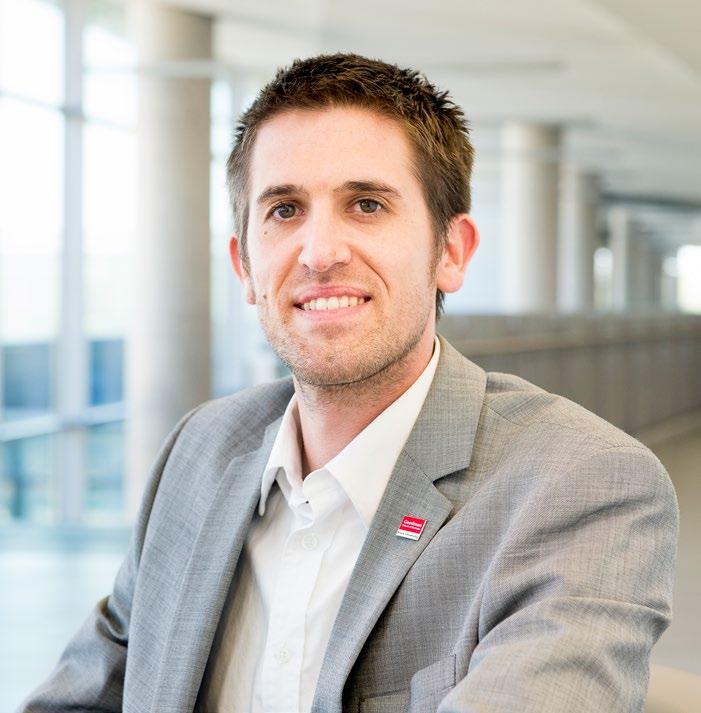
4 minute read
Goodman researchers gain support from SSHRC
By Cathy Majtenyi
Goodman researchers Shawna Chen and Robert Steinbauer often get frustrated when they watch business pitch competitions.
“People will ask women and men different questions,” noted Chen, Associate Professor of Entrepreneurship. “They will ask men, ‘What is your vision for this venture?’ and they will ask women, ‘Are you capable of doing this? Who are your competitors?’”
Steinbauer, Associate Professor of Business Ethics, nodded his head vigorously. “We see that males and females have the exact same pitch, but the males are a lot more likely to get funded.”
The duo is passionate about contributing to a more level playing field for women entrepreneurs. They submitted a project proposal to Canada’s national research funding agency for financial support.
When the Social Sciences and Humanities Research Council of Canada (SSHRC) awarded the team an Insight Development Grant for their project “From thinking to doing to being: The entrepreneurial journey of the overlooked and underestimated,” it was a boost that went way beyond the money.
“SSHRC support means that we speak to the general public, not just to the academics,” Chen said.
Steinbauer added, “It means that what I’m doing is important, not just to myself. Somebody thinks what we are doing can actually have an impact.”
In the latest funding round, SSHRC awarded 11 Brock University researchers $655,000 towards Insight Development Grants. About a quarter of these grants were captured by Goodman faculty.
Chen and Steinbauer’s research team will explore perceptions that influence the thoughts and actions of early-stage entrepreneurs in marginalized groups, particularly women.
Using a smartphone application developed specifically for the project, some 200 entrepreneurs in the process of launching their ventures will reflect on what they think of experiential activities, such as mentorship programs, and how these shaped their subsequent actions, their state of being, and their venture status.
“We would like to see stakeholders in entrepreneurial ecosystems apply our research findings to design more tailored programs for women and marginalized entrepreneurs,” Chen said.

Kemi Anazodo, Assistant Professor of Organizational Behaviour and Human Resource Management

Shawna Chen, Associate Professor of Entrepreneurship

Sylvia Grewatsch, Assistant Professor of Strategy

Tatyana Sokolyk, Associate Professor of Finance

Robert Steinbauer, Associate Professor of Business Ethics
INSIGHT DEVELOPMENT GRANTS AWARDED
Two other Goodman School research projects received Insight Development Grants this year.
Kemi Anazodo and her team are researching how people with a criminal history can be best integrated into the workforce.
The Assistant Professor of Organization Behaviour and Human Resource Management, forged relationships with the John Howard Society of Ontario and academics across the United States to carry out research analyzing employers’ attitudes and practices regarding the hiring of workers with criminal pasts.
“We know from past research that an essential aspect of integrating people with a criminal history into society is with gainful, sustainable employment. However, most individuals experience so many barriers and hardships in being able to attain that,” she said.
Also being awarded an Insight Development Grant is Assistant Professor of Strategy Sylvia Grewatsch for her research, “Reimagining the role of government in catalyzing solutions to grand challenges: Lessons from a 20-year experiment.”
She is using the case study of the Alberta government’s Alberta Oil Sands Research and Technology Authority (AOSTRA) — created by thenPremier Peter Lougheed in 1974 and involving more than 1,000 innovative projects — to investigate how governments can move beyond playing the “passive” role of providing conducive markets and incentives to take on a more active, “catalytic” role in solving large-scale societal and environmental problems.
“The insights of the historical case of AOSTRA will help to inform organizational and management researchers about the role of governments in tackling the grand challenges of our times, such as decarbonizing or diversifying economies,” Grewatsch said. “By making research documents publicly available in an online repository, the research team further aims to inform similar projects in other research disciplines as well as to support governments in making large-scale public investments for sustainable developments.”
The Insight Development Grant is designed to support research in its early stages, where new research questions are being explored, or new methods, theoretical approaches or ideas are being used. The research is short-term and smaller scale.
FUNDING FOR LONG-TERM PROJECTS
Long-term, large-scale projects are being funded by SSHRC’s Insight Grant program.
In the latest round of Insight Grant funding, Tatyana Sokolyk, Associate Professor of Finance, was awarded funding for her research project “Asset allocation decisions of professional money managers worldwide.”
Most academic research on professional money managers tends to focus on asset allocation decisions of U.S. mutual funds at the home market. Sokolyk and her team are expanding that research to advance understanding of asset allocation decisions of professional money managers worldwide to develop practical implications of these decisions for individual investors and policy-makers.
“A better understanding of how professional money managers make portfolio allocation decisions in international markets and their performance implications will be useful to individual investors, professional investors, financial advisers, policy-makers, and academics,” she said.
As the name implies, SSHRC funding supports research projects and training for students and post-doctoral fellows in the fields of humanities and social sciences in post-secondary institutions all across Canada.
SSHRC funding opportunities are available through three programs: Talent, Insight and Connection.










